How to Eat a Balanced Vegetarian Diet
Whether you’re a veteran vegetarian or considering a vegetarian or vegan diet, this article shares how to have a balanced, healthy vegetarian diet plan. I’m a registered dietitian nutritionist and am going to share what nutrients are important to consider for a balanced vegetarian diet, in order to avoid nutrient deficiencies. (Including the ever popular protein for vegetarians and vegans topic!)
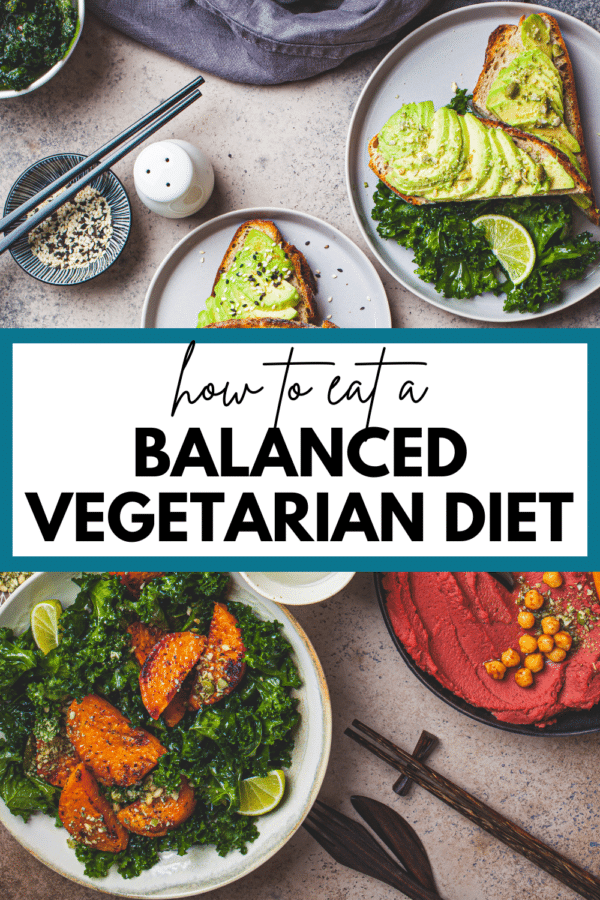
I’ve been getting several questions lately wanting more information about how to eat a balanced vegetarian diet. Well friend, you ask and I deliver!
A vegetarian or a vegan diet can be an incredibly healthy, nourishing, and ethical option for many individuals. Many folks report it helps them feel their best and most energized!
But knowledge is power, and understanding how some nutrients can be more difficult to adequately consume can help you make more informed, intentional decisions regarding your diet and/ or supplementation.
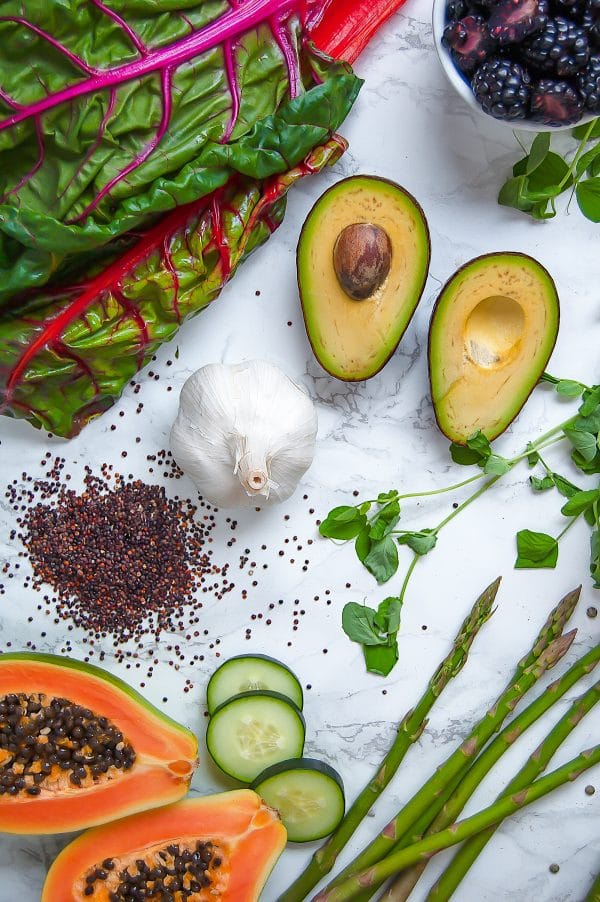
Types of Vegetarian Diets
First, let’s look at the different types of vegetarian diets, because vegetarian isn’t a blanket term for everyone who eats a mostly plant-based diet.
One thing that all vegetarians have in common is that they avoid meat and poultry. But from there, here are the different types of vegetarian diets:
- Lacto-Ovo Vegetarians eat dairy products and eggs (the most common form of vegetarianism)
- Lacto-Vegetarians eat dairy products but avoid eggs
- Ovo-Vegetarians eat eggs but avoid dairy products
- Vegans do not eat dairy products, eggs, or any other animal-derived products (i.e. honey from bees)
All types of vegetarian diets include a focus on vegetables, fruits, grains, legumes, pulses, nuts, seeds, and other non-animal based foods. This can sometimes make it easier for vegetarians to consume a more balanced diet than omnivores!
Important Nutrients for a Balanced Vegetarian Diet
Vegan and vegetarian dietary requirements are no different than for anyone else. That said, some nutrients may be easier and others harder to obtain.
Many on a vegetarian or vegan diet find their diets naturally have less saturated fat, trans fat, calories, and higher amounts of fiber and micronutrients, etc.
On the other hand, some nutrients can be at a greater risk for deficiency for vegans and vegetarians. Let’s check some of these out now.
How Much Protein Does a Vegetarian Need?
One of the first questions that vegetarians and vegans are often asked is, “how do you get enough protein?!”
Yes – protein is important! It plays essential roles in maintain muscles, bones, healthy skin, hormones, organs, and so much more! In fact, you can check out an entire article I’ve written about protein here.
Vegetarian or not, the Recommended Dietary Allowance of protein for a sedentary adult is 0.8 grams protein per kilogram body weight (there are 2.2 pounds in 1 kilogram). However some studies suggest higher amounts can be beneficial for athletes, satiety, or for those with weight loss goals.
Vegetarian Protein Sources
There are many, many of plant-based protein sources (including small amounts in things like grains and vegetables) that all add up!
Vegetarian protein sources include:
- Legumes/ beans
- Lentils
- Nuts
- Seeds
- Whole grains
- Soy products (like tofu and tempeh)
- Meat substitutes
For those of you vegetarians who consume eggs and/ or dairy, those are great protein sources, too. (And you’ll likely have an easier time meeting your protein needs.)
Complete vs Incomplete Proteins
One thing that’s good to know when it comes to vegetarian nutrition, is that the majority of plant-based protein sources are considered incomplete. Incomplete protein just means the protein source doesn’t provide all nine essential amino acids.
There are some plant-based proteins that are complete, with all nine essential amino acids. Proteins like tofu, edamame, tempeh, quinoa, and buckwheat.
But even if a protein does not provide all nine essential amino acids, it’s not that big of a deal. Some foods will be complimentary, providing all essential amino acids when paired with another food (like eating beans and rice together or peanut butter toast).
In general, aim to consume a variety of protein sources throughout your day.
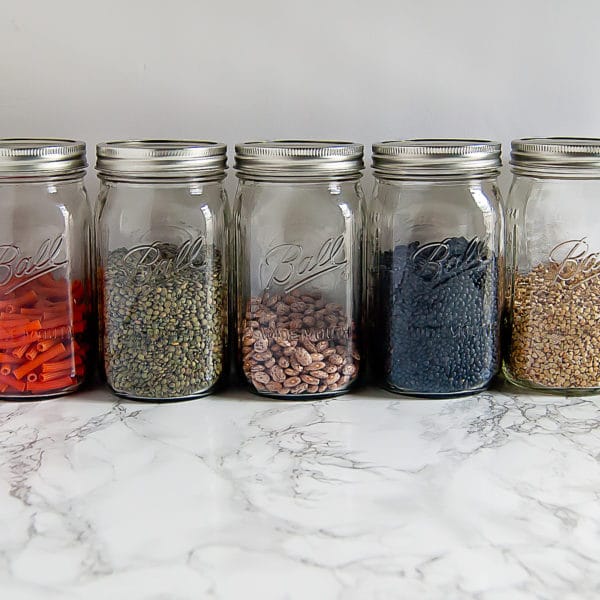
Vegetarian and Vegan Iron Needs
Iron is critical for red blood cell production to help carry oxygen throughout your body. Adults over the age of 19 require 19.3–20.5 mg iron per day in men and 17.0–18.9 mg/day in women.
Plant-Based Sources of Iron
Plant-based sources of iron for vegans and vegetarians include:
- Dried beans and peas
- Lentils
- Enriched cereals and other enriched products
- Dark leafy greens
- Whole grains
- Dried fruit
Unfortunately these plant-based iron sources aren’t as easily absorbed by the body as animal sources.
Some Nutrients Interfere or Help Iron Absorption
Some nutrients, like calcium, interfere with iron absorption. If you’re taking a calcium supplement or drinking calcium-fortified juice and soy milk in the morning, consume iron-rich foods at other times of day.
On the other hand, vitamin C is a nutrient that can help iron’s absorption. Examples of how you can use vitamin C to maximize iron absorption would be to try fresh citrus juice in a salad dressing for dark leafy greens or adding red bell peppers and broccoli to a lentil stir fry.
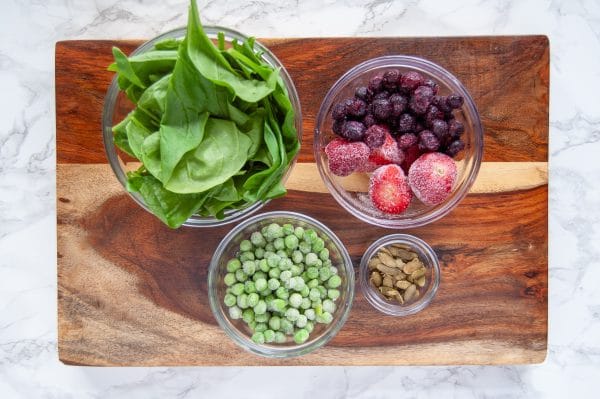
Try the NTF 5-a-Day smoothie! The Berry Pea Green Smoothie pictured above has iron-rich dark leafy greens and peas paired with vitamin C-rich berries!
Zinc Needs for Vegans and Vegetarians
Zinc is a part of enzymes and important for cell division and protein formation. It’s recommended adult men consume 11 mg daily and adult women 8 mg daily.
Vegetarians and vegans can have a harder time consuming enough zinc, as it’s not as easily absorbed from plant sources as it is animal sources.
If you’re a lacto-vegetarian, dairy is a good source of zinc. Other sources of zinc for vegans and vegetarians include:
- Soy products
- Legumes
- Nuts
- Wheat germ
- Whole grains
Calcium Needs for Vegans and Vegetarians
Calcium can help build and maintain strong bones, help with muscle function, and help with nerve signaling. The average adult needs 1000 mg calcium daily, increasing to 1200 mg daily for women over 50 and men over 71.
Of course if you’re a lacto-vegetarian, milk and dairy are great sources of calcium. But there are more calcium-rich foods that even vegans can enjoy!
Vegetarian and vegan sources of calcium include:
- Dark leafy greens (i.e. kale, collard greens)
- Broccoli
- Calcium-fortified foods (i.e. tofu, juices, cereals, soy milks and other fortified milks, and more)
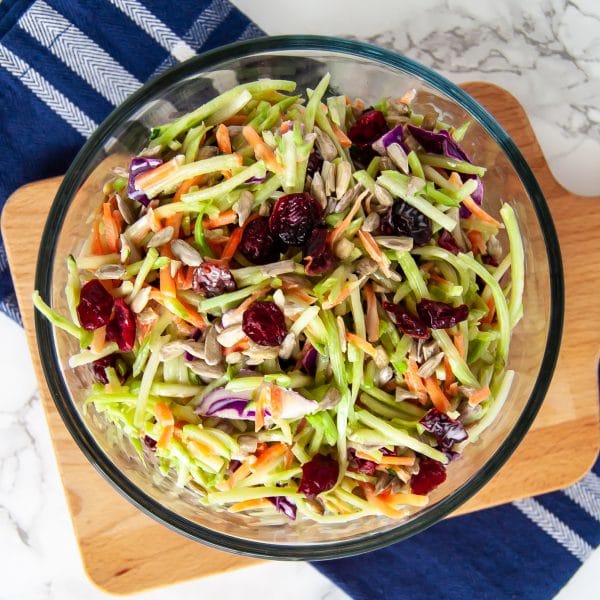
Try this Cranberry Crunch Broccoli Slaw or Air Fryer Broccoli for a tasty way to eat some calcium-rich broccoli!
Vitamin D for Vegans and Vegetarians
Vitamin D is another nutrient that’s important for bone health, as it’s key for calcium absorption. The recommended daily amount of vitamin D is 600 IU for most adults, increasing to 800 IU for adults over 70.
Sources of vitamin D for vegans and vegetarians include:
- Some fortified dairy and plant-based milks (not all are fortified with vitamin D, check the nutrition label)
- Fortified cereals (again, not all will be fortified)
- Some fortified margarines or plant-based butter alternatives
Additionally, vitamin D can also be obtained from sun exposure. However, in some climates, especially in the winter, sun exposure alone can be really difficult to obtain adequate vitamin D. You can have your doctor check your vitamin D levels and turn to supplementation if low.
Vitamin B12 for Vegans and Vegetarians
Vitamin B12 is essential for DNA synthesis, red blood cell production, and cell metabolism. The recommended daily amount of vitamin B12 for adults is 2.4 micrograms.
Unfortunately for vegetarians and vegans, vitamin B12 is found almost exclusively in animal products.
One plant-based source is nutritional yeast, and B12 can also sometimes be found in fortified products, like fortified cereals.
However, it’s still possible to be deficient and many vegans especially may find themselves needing to supplement with vitamin B12. It’s easy for your doctor to check, though, with a simple blood test. Don’t hesitate to ask your physician to check your vitamin B12 levels if you’re a vegan, given the difficulties it can be to obtain adequate intakes!
Omega-3 Fatty Acids for Vegans and Vegetarians
Omega-3 fatty acids are essential for heart health. There isn’t an official recommended daily allowance for EPA and DHA (two types of omega-3 fatty acids), but many health organizations agree that 250-500 mg combined EPA and DHA is adequate for most adults.
If you’re a vegan or a vegetarian who avoids fish and eggs (two sources of omega-3 fatty acids used more efficiently by your body), your omega-3 intake may not be enough.
Plant-based sources of omega-3 fatty acids for vegans and vegetarians include:
- Canola oil
- Soybean oil
- Walnuts
- Flax seed
- Soybeans
These plant-based sources aren’t used as efficiently by the body and some vegans and vegetarians may find themselves needing supplements and/ or fortified products.
Iodine for Vegans and Vegetarians
Iodine is an essential nutrient for thyroid regulation, but many food sources aren’t a great fit for vegans and vegetarians (i.e. tuna, shrimp, eggs, dairy).
Most adults need 150 micrograms of iodine daily (pregnant women need 220 mcg and breastfeeding women need 290 mcg).
Most folks don’t struggle to meet salt recommendations, but if you’re at risk for an iodine deficiency it’s important to consume iodized salt. Sea salts and himalayan pink salts are quite trendy, but they’re typically not iodized. By using iodized salt, just 1/4 teaspoon daily will meet daily needs of iodine for vegans and vegetarians.
Besides iodized salt, other plant-based sources of iodine for vegans and vegetarians include:
- Seaweed
- Prunes
- Lima beans
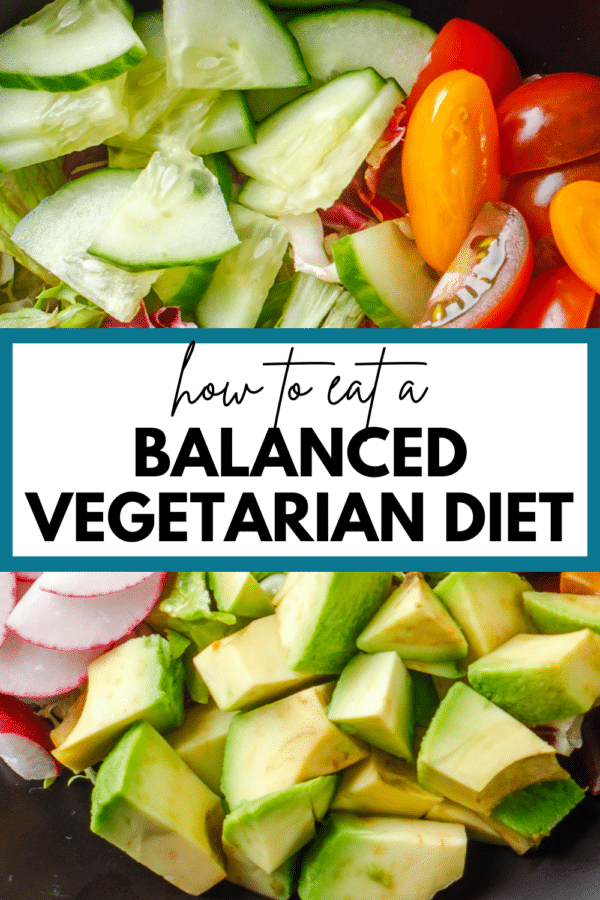
If You Need or Choose to Supplement
If you choose or need to supplement, one thing that’s important to remember is that dietary supplements are not regulated by the FDA. I strongly recommend finding a supplement that is third party tested, so you can ensure it contains what it says it contains, and that there are no contaminants.
If you’re unsure whether or not you should supplement, please discuss with your doctor. You can always request specific labs, too!
Final Balanced Vegetarian Diet Thoughts
So, all in all, yes there are some potential nutrition concerns with a vegetarian or vegan diet, but that doesn’t mean a vegetarian or vegan diet is “bad” – far from it! A plant-based diet can be quite nourishing!
Just keep empowering yourself with knowledge by learning (like you have been if you read this article!) This way you can make your own informed, intentional eating choices.
If you like this post, please share it with a friend! And be sure to follow me on Instagram, Pinterest, and Facebook, too!

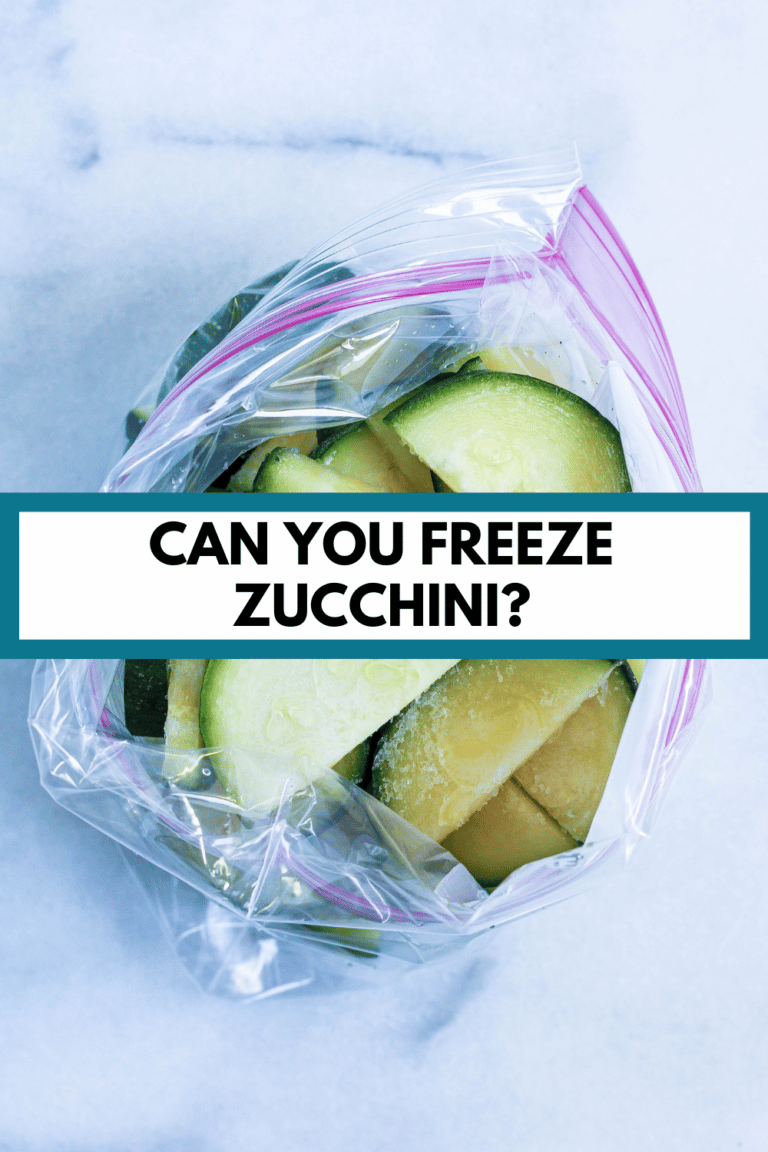
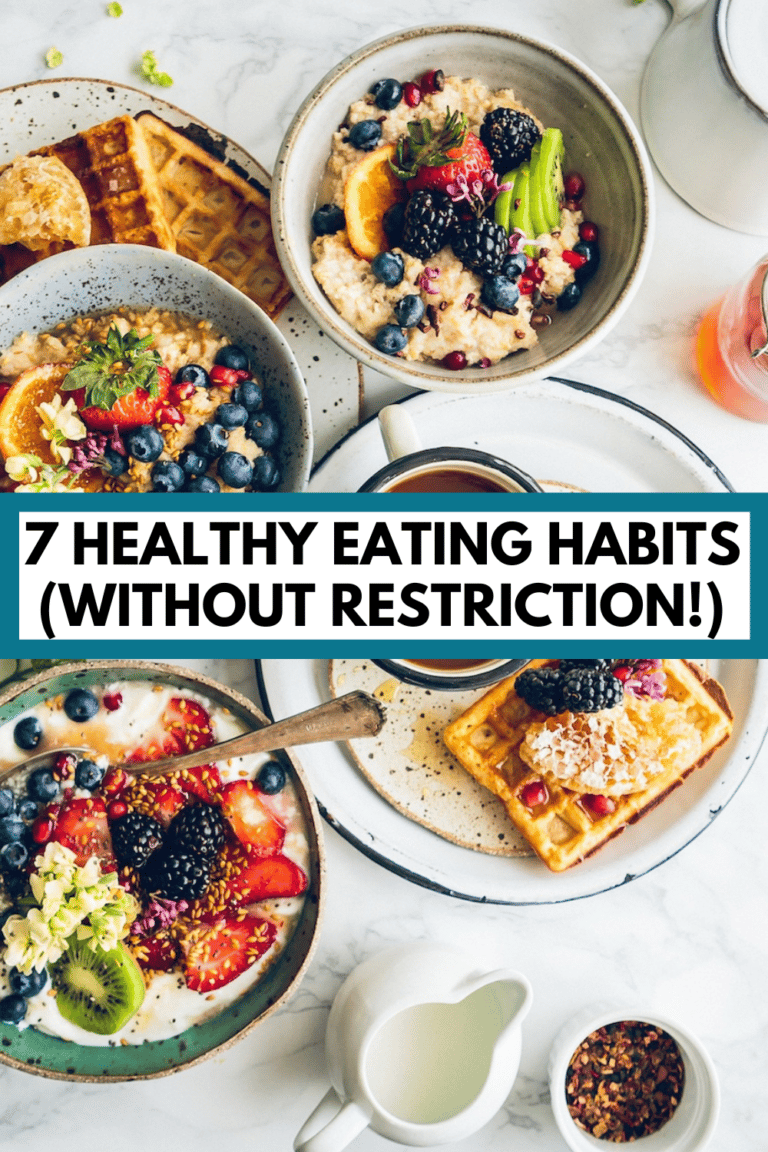
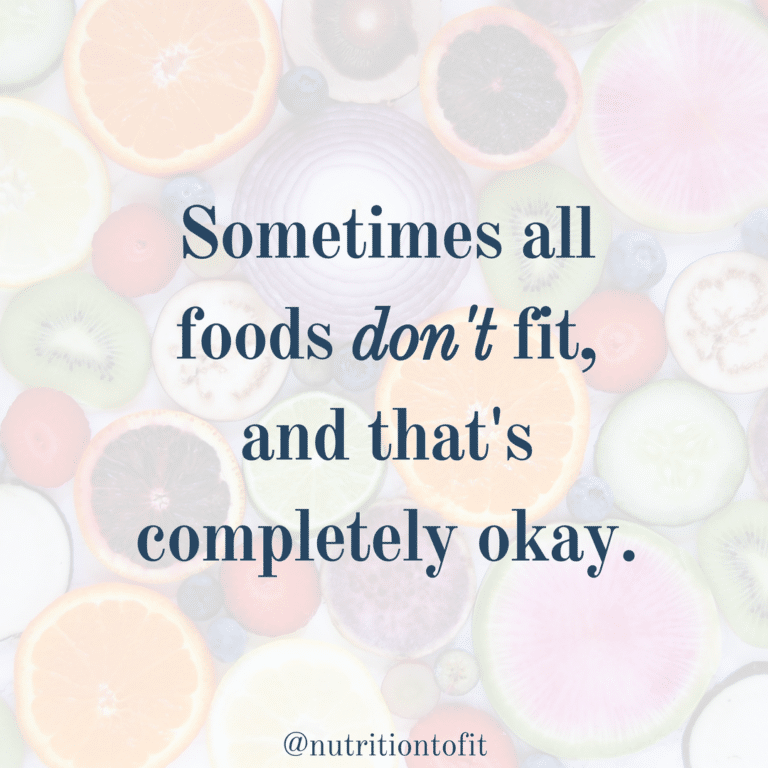
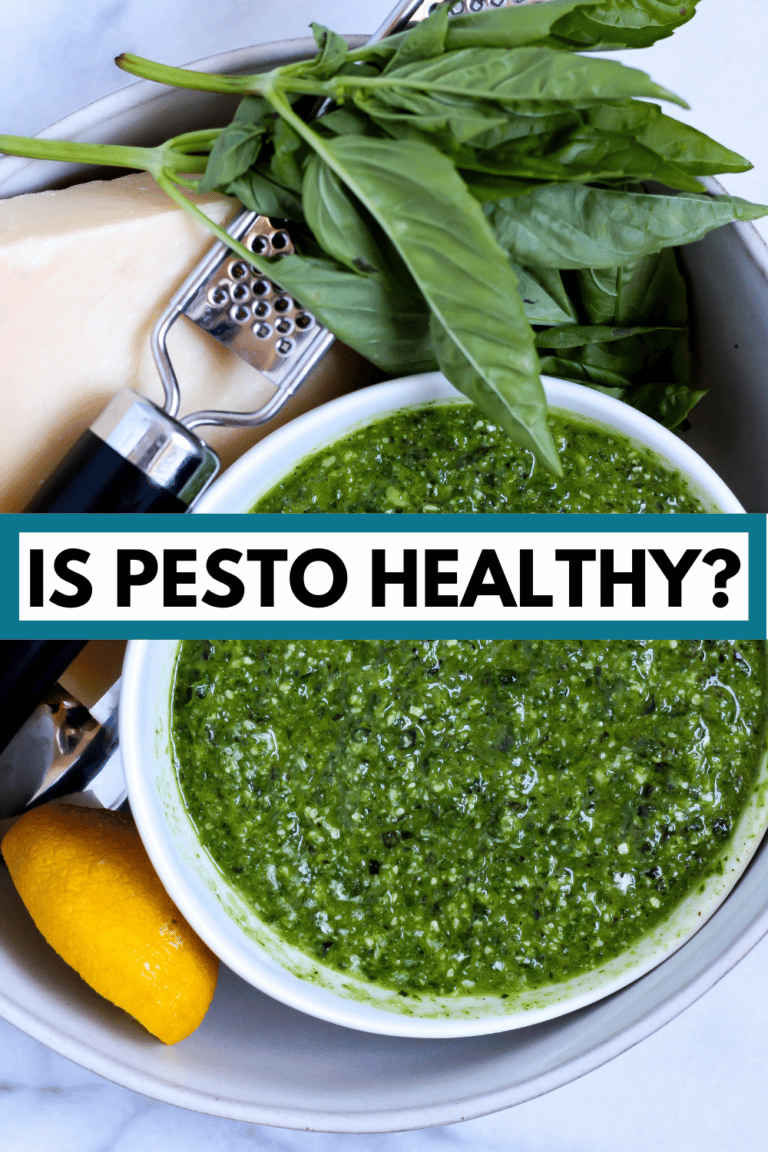
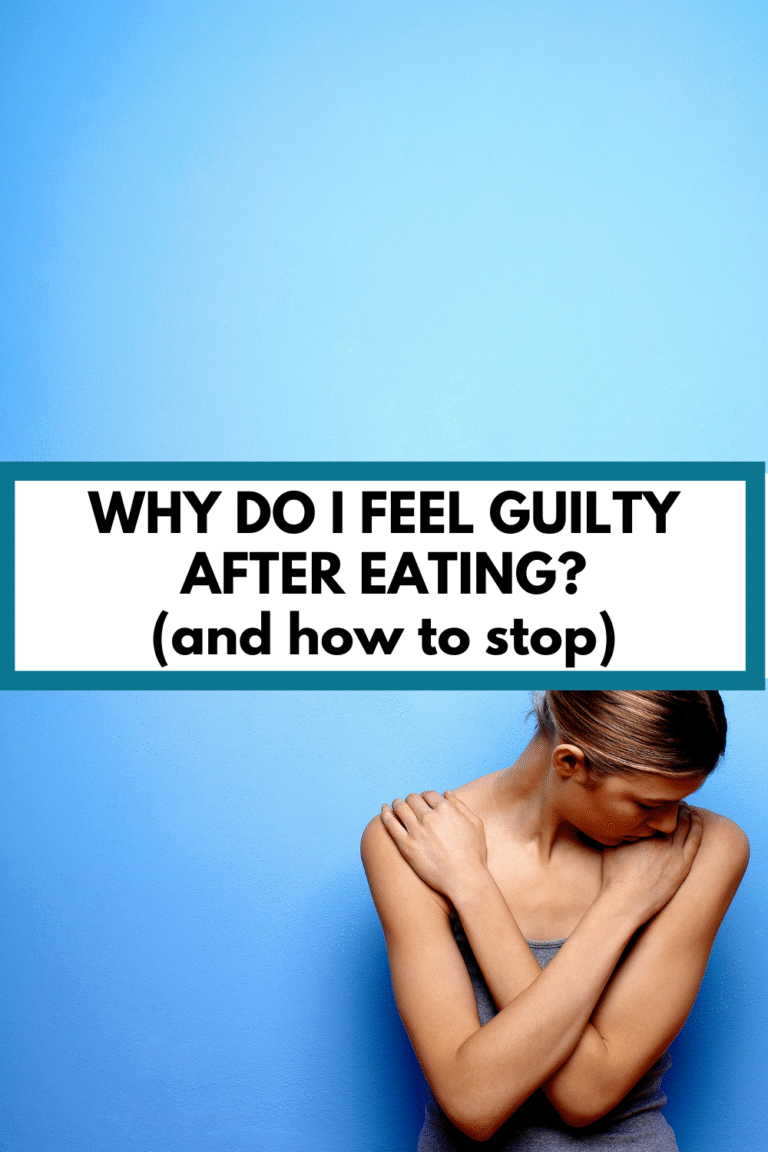
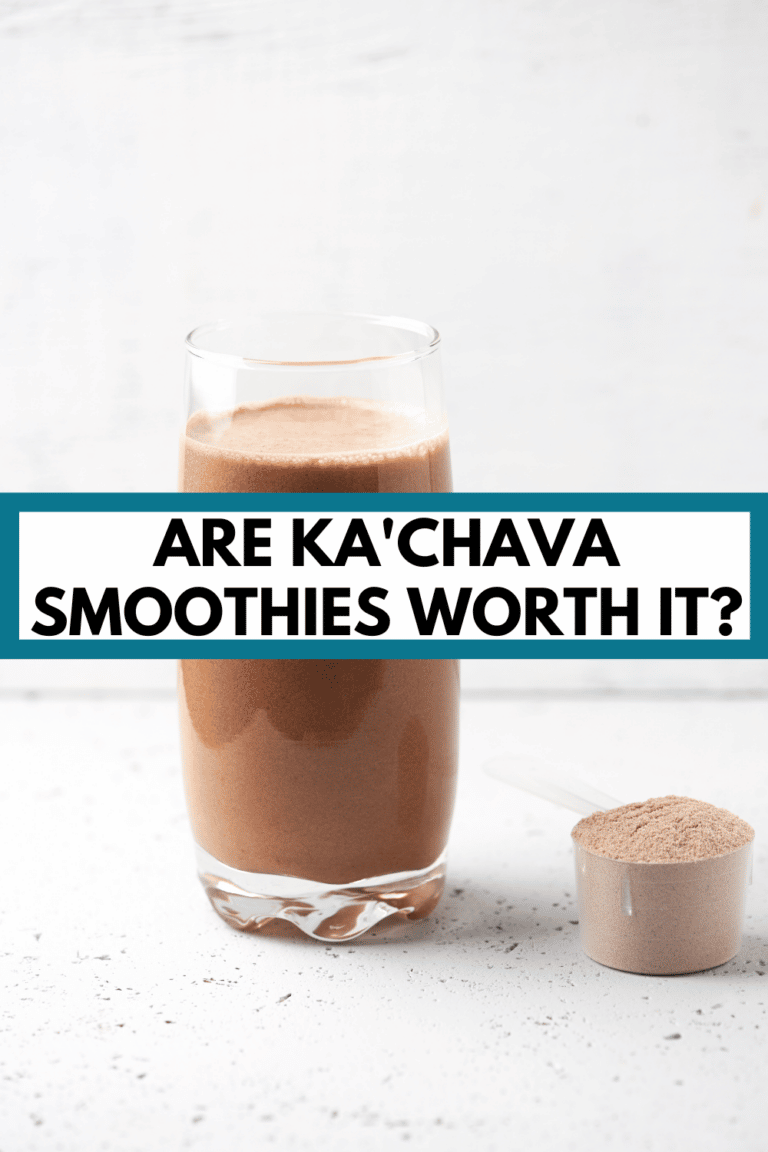
I love how you talked about all of the essential vitamins and minerals that the body needs to stay healthy and function properly and some sources of foods to incorporate into the diet to get these micronutrients!
Thank you so much, glad you found it helpful!
Such great information – thank you so much!
Thanks Tawnie!
This is SO important. I feel like I have to reiterate this all the time. Love your tips!
I bet you do, especially with the athlete population that can have even more specific needs!
So much amazing info! Passing onto my best friend who is also a vegetarian!
Oh perfect, I hope they find it helpful! <3
I just love your completely balanced approach, will definitely be sharing this with clients!
Thank you so much Emily!